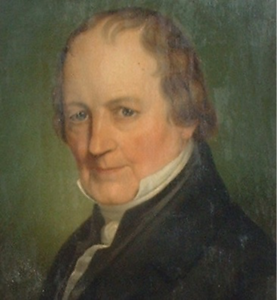Night
(Poet's title: Die Nacht)
Set by Schubert:
D 983C
for male quartet (TTBB)
Schubert did not set the stanzas in italics[before 9th October 1823]
Wie schön bist du,
Freundliche Stille, himmlische Ruh!
Sehet, wie die klaren Sterne
Wandeln in des Himmels Auen,
Und auf uns hernieder schaun,
Schweigend aus der blauen Ferne.
Wie schön bist du,
Freundliche Stille, himmlische Ruh!
Schweigend naht des Lenzes Milde
Sich der Erde weichem Schoß,
Kränzt den Silberquell mit Moos,
Und mit Blumen die Gefilde.
Wie schön bist du,
Freundliche Stille, himmlische Ruh!
Wenn nicht mehr des Wetters Wogen
Um den Himmel tobend ziehn,
Donner krachen, Blitze sprühn,
Blüht des Friedens stiller Bogen.
Wie schön bist du,
Freundliche Stille, himmlische Ruh!
Wo der Wellen rauh Getümmel
Schweigt, des Meeres Brausen ruht,
In der unbewegten Flut
Glänzt der klare, blaue Himmel.
Wie schön bist du,
Freundliche Stille, himmlische Ruh!
Nicht zu Salems hohen Toren,
Zu der Königsstädte Pracht
Stieg die heilge Wundernacht,
Aus des Urlichts Quell geboren.
Wie schön bist du,
Freundliche Stille, himmlische Ruh!
Engelchöre sangen Lieder
In des Nachthauchs leisem Wehn,
Und auf Bethlehms stille Höhn
Schwebten Seraphim hernieder. –
Wie schön bist du,
Freundliche Stille, himmlische Ruh! –
In des Kindes zarter Hülle,
In der heil’gen Mutter Schooß,
Auf der Krippe weichem Moos
Lag des ew’gen Lichtes Fülle!
How beautiful you are,
Friendly silence, heavenly calm! –
Look at how the bright stars
Are moving across the meadows of heaven,
And how they are looking down on us
In silence out of the blue distance.
How beautiful you are,
Friendly silence, heavenly calm! –
The gentleness of spring is approaching in silence
Towards the soft womb of the earth,
It is garlanding the silver spring with moss
And the fields with flowers.
How beautiful you are,
Friendly silence, heavenly calm! –
When the waves of the storm
Are no longer raging around the sky,
With thunder rumbling and lightning flashing,
The quiet bow of peace will blossom.
How beautiful you are,
Friendly silence, heavenly calm! –
Wherever the rough tumult of the waves
Falls silent, where the roaring of the sea calms down,
In the unruffled waters
The clear, blue sky shines out.
How beautiful you are,
Friendly silence, heavenly calm! –
It was not to Salem’s lofty gateways
Or to the majesty of royal cities
That the sacred miraculous night ascended,
Born from the spring of primeval light.
How beautiful you are,
Friendly silence, heavenly calm! –
Choirs of angels sang
In the gentle stirring of the night air,
And over the quiet heights of Bethlehem,
Seraphim floated down.
How beautiful you are,
Friendly silence, heavenly calm! –
In the tender covering of a child,
In the sacred womb of a mother,
On a crib of soft moss
The fullness of eternal light lay down!
All translations into English that appear on this website, unless otherwise stated, are by Malcolm Wren. You are free to use them on condition that you acknowledge Malcolm Wren as the translator and schubertsong.uk as the source. Unless otherwise stated, the comments and essays that appear after the texts and translations are by Malcolm Wren and are © Copyright.
☙
Themes and images in this text:
Blue Fields and meadows Flowers Heaven, the sky Lap, womb (Schoß) Moss Near and far Night and the moon Noise and silence Silver Spring (season) Springs, sources and fountains Stars
We need to reach the final two stanzas (which Schubert did not set to music) in order to realise that this ‘silent night’ is Christmas, and that the imagery of light coming to the earth from the distant heavens is a symbol of the incarnation and salvation. The power of spring and rejuvenation is revealed during one of the longest, darkest nights of the year. “And the light shineth in darkness; and the darkness comprehended it not.” (John 1: 5 King James Version).
☙
Original Spelling Die Stille (Silence) Wie schön bist du, Freundliche Stille, himmlische Ruh! - Sehet, wie die klaren Sterne Wandeln in des Himmels Auen, Und auf uns hernieder schaun, Schweigend aus der blauen Ferne. Wie schön bist du, Freundliche Stille, himmlische Ruh! - Schweigend naht des Lenzes Milde Sich der Erde weichem Schooß, Kränzt den Silberquell mit Moos, Und mit Blumen die Gefilde. Wie schön bist du, Freundliche Stille, himmlische Ruh! - Wenn nicht mehr des Wetters Wogen Um den Himmel tobend ziehn, Donner krachen, Blitze sprühn, Blüht des Friedens stiller Bogen. Wie schön bist du, Freundliche Stille, himmlische Ruh! - Wo der Wellen rauh Getümmel Schweigt, des Meeres Brausen ruht, In der unbewegten Fluth Glänzt der klare, blaue Himmel. Wie schön bist du, Freundliche Stille, himmlische Ruh! - Nicht zu Salems hohen Thoren, Zu der Königsstädte Pracht Stieg die heil'ge Wundernacht, Aus des Urlichts Quell gebohren. Wie schön bist du, Freundliche Stille, himmlische Ruh! - Engelchöre sangen Lieder In des Nachthauchs leisem Wehn, Und auf Bethlehms stille Höhn Schwebten Seraphim hernieder. - Wie schön bist du, Freundliche Stille, himmlische Ruh! - In des Kindes zarter Hülle, In der heil'gen Mutter Schooß, Auf der Krippe weichem Moos Lag des ew'gen Lichtes Fülle!
Confirmed by Peter Rastl with Festbüchlein. Eine Schrift für das Volk von F. A. Krummacher. Zweites Bändchen. Das Christfest. Duisburg und Essen, bei Bädeker und Kürzel, Universitätsbuchhändlern. 1810, pages 170-171.
Note: This is the first version of Krummacher’s Die Stille. He published a different version of this poem in 1821
To see an early edition of the text, go to page 170 here: https://download.digitale-sammlungen.de/BOOKS/download.pl?id=bsb11291092


